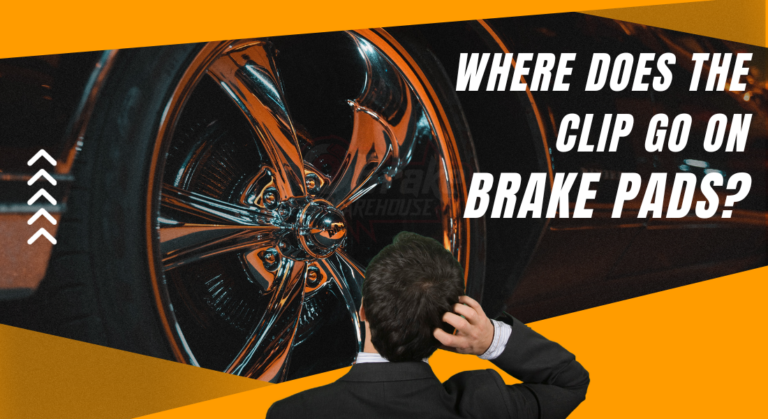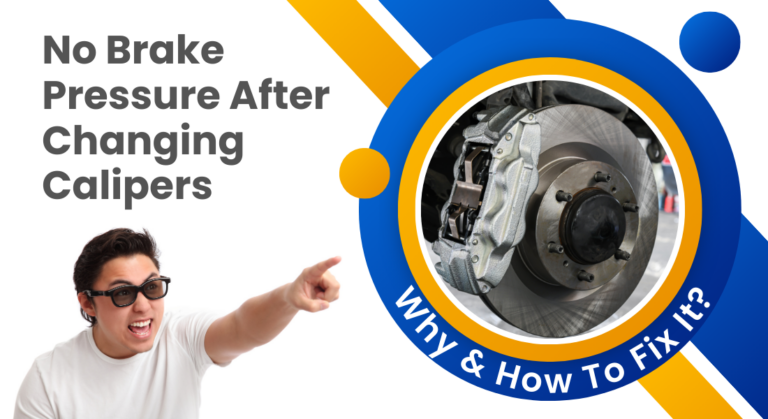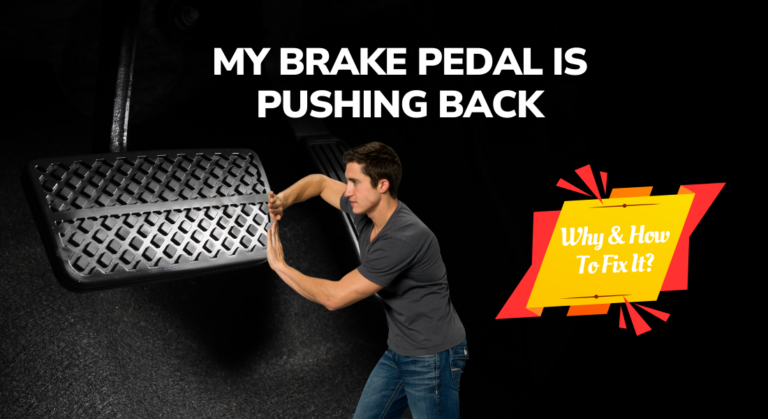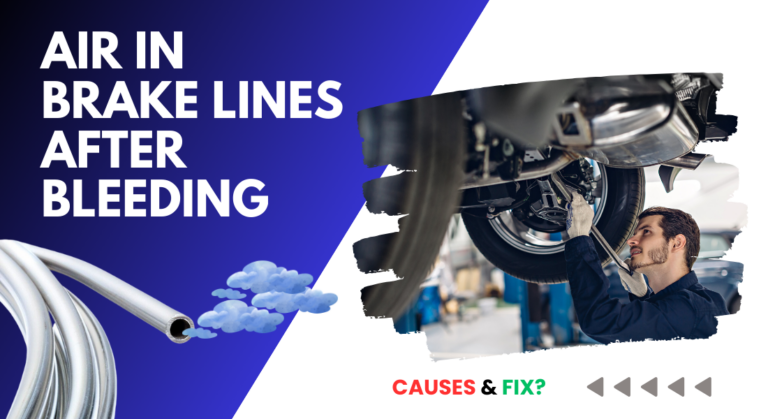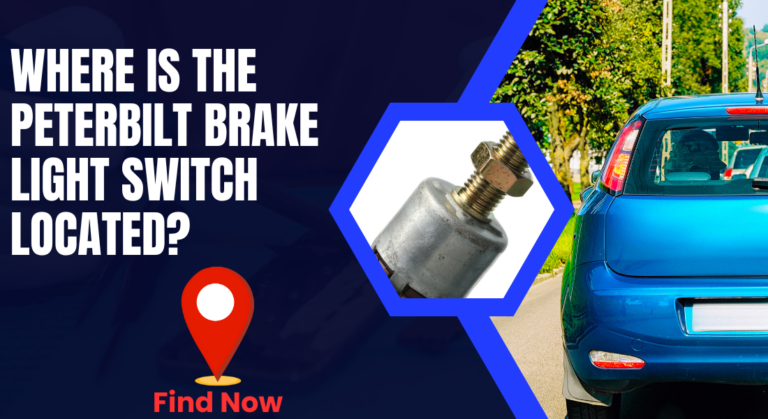How Long Can You Drive with 2mm Brake Pads?(Avoid Risk)
Worn out brake pads can cause severe accidents. If you hear unusual squeaking noise from brake pads, be sure it becomes 2mm thin. So, the question is how long can you drive with 2mm brake pads? Should you drive with such thin brake pads?
Driving with 2mm brake pads is dangerous and not recommended. They offer limited braking power, increasing the risk of accidents. Immediate replacement is necessary for safe and effective braking performance.
Continue reading to learn more.
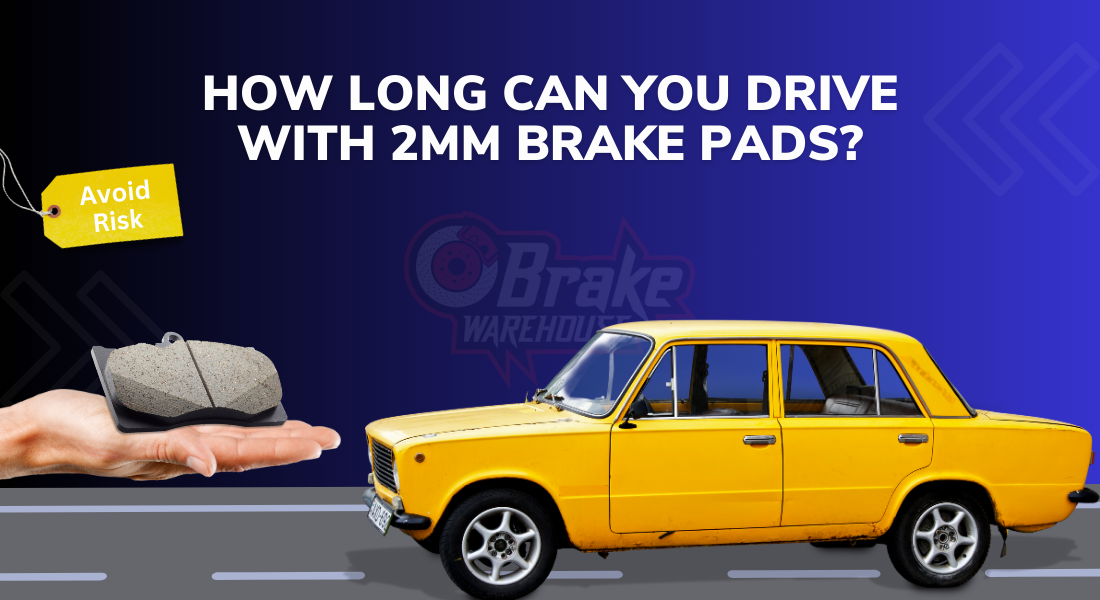
How Long Can You Drive with 2mm Brake Pads?
Driving with brake pads worn down to 2mm is extremely unsafe and should be avoided at all costs.
At this thickness, the brake pads are significantly beyond their service life and must be replaced immediately to ensure your safety and the safety of others on the road.
When brake pads wear down to such a minimal thickness, they provide inadequate friction and braking performance. This means your vehicle will have a much longer stopping distance, putting you at a higher risk of accidents, especially in emergencies.
Furthermore, at 2mm thickness, the brake pads are close to where they may separate from the backing plate, resulting in metal-to-metal contact with the brake rotor.
This metal-on-metal contact generates excessive heat, causes rapid deterioration of the rotor surface, and significantly reduces braking efficiency. The resulting loss of braking power can lead to dangerous and potentially life-threatening situations on the road.
In summary, driving with 2mm brake pads is dangerous and should not be done. The moment you notice your brake pads reaching this level of wear, it is crucial to have them replaced promptly.
Let the brake pads be checked by a qualified mechanic to maintain safe and effective braking performance. Prioritizing brake pad maintenance is essential for your safety and everyone sharing the road with you.
What Happens if You Drive with 2mm Brake Pads?
If immediate pad replacement isn’t feasible, exercise caution by avoiding excessive brake pressure. Overloading the worn pads can result in complete brake failure.
For drivers, maintaining well-functioning brake pads is vital. Worn pads can compromise braking effectiveness and increase the risk of accidents.
You May Lose Control of Your Vehicle

Worn brake pads pose a significant risk, potentially compromising your vehicle’s brake performance and jeopardizing control.
When brake pads deteriorate, they impede your ability to stop promptly, increasing the chances of losing control and colliding with other objects.
Moreover, neglecting proper safety gear while driving with worn brake pads, leaving you susceptible to accidents and self-injury. Therefore, addressing brake pad wear is essential to maintain optimal vehicle control and ensure road safety for yourself and others.
Your Brake will Function Inefficiently
Inadequate brake performance poses a grave hazard, increasing the risk of accidents and severe injuries. When brakes function below par, the potential for accidents escalates significantly.
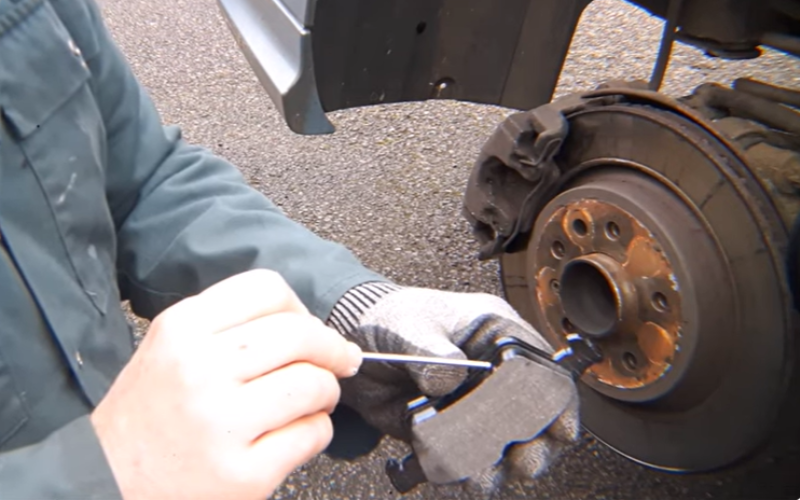
2mm brake pads exacerbate the issue by reducing a vehicle’s traction, particularly on wet or icy surfaces. This compromised grip hampers your ability to come to a halt safely.
Consequently, maintaining efficient brake functionality is paramount to mitigate accident risks and ensure secure stopping, especially during adverse weather conditions. Prompt brake pad replacement is crucial to safeguard you and fellow road users from harm.
Read Also: Can Brake Pads Worn Out in 3 Months? (Extend Lifespan)
Your Car May Burn Out
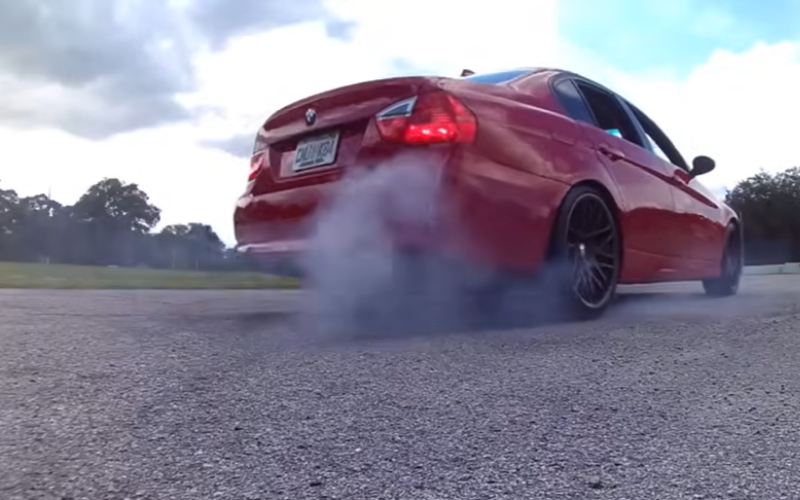
Brake pad wear compromises braking and elevates the risk of your vehicle burning out due to excessive use. This situation can result in costly repairs or even destruction if not addressed.
2mm brake pads can overheat the braking system, causing a cascading effect of damage to other components. To prevent this catastrophic scenario and the associated expenses, it is imperative to promptly address brake pad wear by replacing them as needed.
Doing so ensures the longevity and safety of your vehicle, minimizing the risk of burnout and costly repairs.
Increased Car Stopping Distance

2mm brake pads can substantially extend your car’s stopping distance, elevating the risk of accidents.
Compared to new pads, their accelerated wear reduces braking power over time. This issue becomes particularly apparent when attempting rapid stops within shorter distances. The reason is the worn pads struggle to provide the necessary friction.
Addressing this concern is crucial to ensure safe and efficient braking, preventing accidents and potential harm. Timely replacement of worn brake pads is essential for optimal stopping performance and minimizing the risk of increased stopping distances.
The Brake Pads Become Mushy and Spongy

Reduced friction between your foot and the brake pedal results in resistance that permeates the entire drivetrain, impacting both the engine and transmission.
This effect translates into decreased fuel efficiency, heightened noise levels, and even elevated emissions. The compromised interaction within the drivetrain, triggered by decreased pedal friction, contributes to these undesirable consequences.
Solving brake issues promptly can mitigate these adverse effects, ensuring smoother operation, improved fuel economy, and reduced environmental impact.
2mm Brake Pads Create Unusual Noise

Excessive oxidation, or rust, on the pad material’s surfaces, can result in vibrations during regular operation, producing both high-pitched squeaks and deeper rumblings.
These noises may inadvertently reveal your presence when parked at night, especially if you’re attentive to unusual sounds. This could compromise your stealth or discretion, making it easier for others to detect your location.
Solving rust-related issues in the brake pads can help maintain a quieter and less conspicuous vehicle operation.
Read Also: How Long Will 3mm Brake Pads Last? (The Ideal Thickness)
What to Do When You Have 2mm Brake Pads?
Typically, brake pads require replacement every 30,000 miles unless your owner’s manual specifies otherwise.
However, the cost of this replacement can vary based on your vehicle’s make, model, and age. Generally it falls between $231 and $275 for most vehicle owners.
When you notice signs of worn brake pads, take immediate action to avoid potential accidents or expensive repairs:
- Prompt Inspection: Worn or 2mm brake pads can damage the rotor, necessitating more costly replacements. Have your vehicle examined by a certified repair facility or an ASE-certified technician without delay.
- Avoid Driving: If you can access roadside assistance, such as the complimentary 24/7 service provided to Endurance customers, use it to transport your vehicle to an auto repair shop. Driving with worn brake pads can make you liable in an accident, resulting in financial burdens and potential insurance rate hikes, as well as the need for brake pad repairs or replacements.
- Ensure Safe Driving: If driving before repair is necessary, do so with care and anticipate slower response times. Repeated slamming on the brakes can accelerate tire wear and potentially lead to various mechanical issues.
Maintenance Tips for Brake Pads
Proper maintenance of brake pads is crucial to ensure your vehicle’s safety and performance. Here are some essential tips to help you maintain your brake pads effectively.
Regular Inspection

Frequent visual inspections of your brake pads are essential. Look through the spokes of your wheel to see if the pad material is still thick enough. If it’s less than a quarter-inch thick, it’s time for a replacement.
Avoid Aggressive Driving
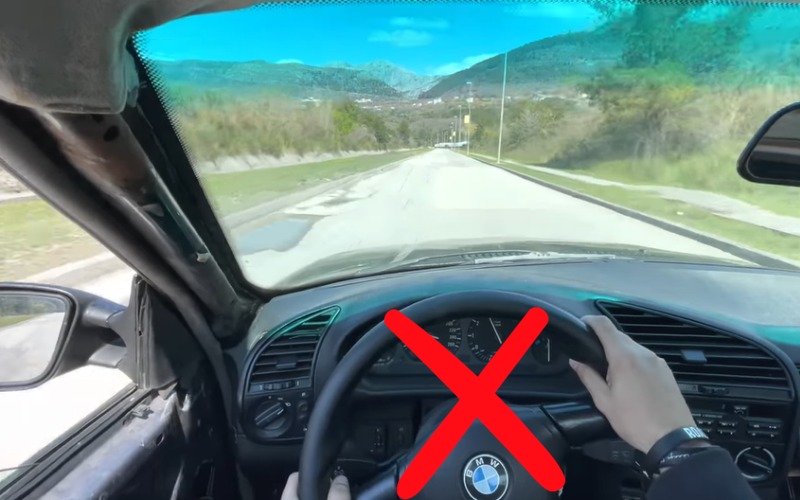
Aggressive driving habits like rapid acceleration and hard braking needs to be avoided. Such behavior can accelerate brake pad wear. Smooth, controlled driving extends the lifespan of your brake pads.
Reduce Unnecessary Weight
Excess weight puts additional strain on your brakes. Remove unnecessary items from your vehicle to reduce the load on your brake system and prolong the life of your brake pads.
Follow the Recommended Maintenance Schedule
Consult your vehicle’s owner’s manual for the manufacturer’s recommended maintenance schedule. Regularly servicing your vehicle ensures that brake pads and other components are inspected and replaced as needed.
Professional Inspection

If you need clarification on the condition of your brake pads, have them inspected by a qualified mechanic. They can assess the wear and provide recommendations for replacement if necessary.
Read Also: How Long Can You Drive Without Brake Pads? – Is It Safe
FAQs
What is the minimum safe thickness for brake pads?
The minimum safe thickness for brake pads typically ranges from 3mm to 4mm. However, specific recommendations may vary by vehicle make and model, so it’s essential to consult your owner’s manual or a qualified mechanic for precise guidelines. Maintaining adequate pad thickness ensures optimal braking performance and safety.
Are 2mm brake pads safe for driving short distances?
Driving with 2mm brake pads, even for short distances, is unsafe. The pads offer significantly reduced braking effectiveness at this thickness, increasing the risk of accidents. Replacing worn brake pads promptly is essential to ensure safe and reliable stopping, regardless of the distance traveled.
Read Also: Can Worn Brake Pads Cause ABS Light to Come On?(Find Now)
To Recap
I believe you got the answer to the question: how long can you drive with 2mm brake pads.
Even if your brake pads are in good condition, it’s crucial to exercise caution when they become worn. 2mm brake pads can lead to various road problems, such as reduced braking performance and potentially hazardous skidding.
If you detect signs of brake pad wear, promptly schedule an inspection. Driving with deteriorated brakes is unsafe and illegal in most US states.
You don’t necessarily need to replace the entire brake system when pads wear out. There are safe and cost-effective options for repairing or replacing these components individually.

Meet Zayan, the mechanical genius behind the highly acclaimed brakes problems and solutions website. With over a decade of hands-on experience in the automotive industry, Zayan has become a trusted authority in the realm of brake systems.
His passion for cars, coupled with his expertise in solving complex brake-related issues, has earned him a devoted following of car enthusiasts, mechanics, and everyday drivers seeking reliable guidance.

